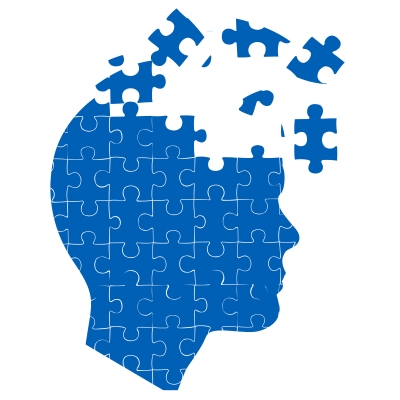Can we reduce our risk of Alzheimer’s disease? Researchers believe so. Studies have found that keeping the brain active can help to protect it. A 2012 study found that engaging in brain-stimulating activities throughout life was associated with a reduced risk of Alzheimer’s disease. Those who stayed mentally engaged from childhood to old age had lower levels of beta amyloid, which is a protein that can clump together to form hardened plaques in the brain. These plaques can destroy memory and thinking skills. They are often found in the brains of people suffering from Alzheimer’s disease. Here are some education, learning, and brain games that can help protect brain health:
- Learn Something New: The brain is rarely challenged as much as when it comes up against completely unfamiliar territory. Learning how to navigate new situations requires the creation of new messaging pathways that haven’t been used before. Something about this process seems to encourage brain health. Try learning to play a musical instrument or take up a new hobby. The greater the challenge, the bigger the benefit to your brain.
- Read and Play Chess: Some researchers have found that leisure time activities can reduce the risk of Alzheimer’s disease. For example, those who spent time reading and playing chess were less likely to suffer the disease than those who watched TV. The key is stimulating the brain.
- Puzzles: Scientists have generally agreed that doing crossword puzzles may reduce your risk of Alzheimer’s; however, there is no scientific research that shows this directly. It is important to simulate the brain on a regular basis though. You can do this by completing a few crossword puzzles, putting together a puzzle, or challenging yourself with a math problem. You may receive even greater benefits if you learn something entirely new.
- Play with Friends: Researchers have found that those who spend their leisure time interacting with friends and family, and taking part in clubs have a much lower risk of dementia than people who don’t. Maintaining social connections can become more difficult with age, so try joining new clubs, taking a class, or volunteering to maintain them.
Resource: http://www.healthline.com/health-slideshow/alzheimers-brain-games#1




